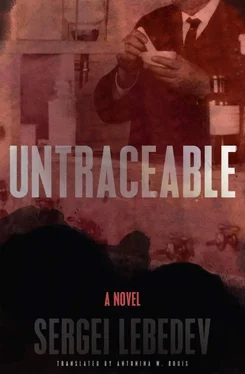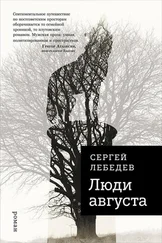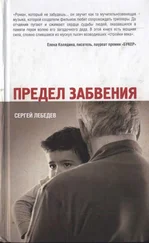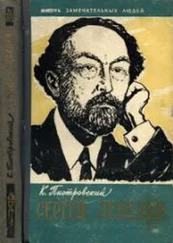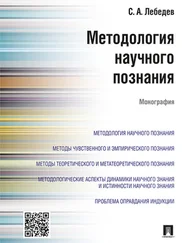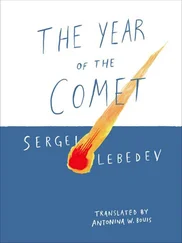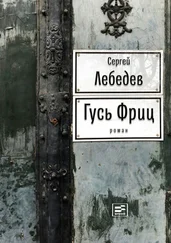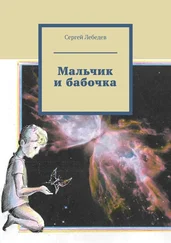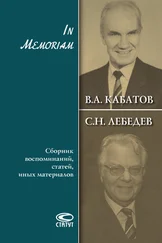Сергей Лебедев - Untraceable
Здесь есть возможность читать онлайн «Сергей Лебедев - Untraceable» весь текст электронной книги совершенно бесплатно (целиком полную версию без сокращений). В некоторых случаях можно слушать аудио, скачать через торрент в формате fb2 и присутствует краткое содержание. Город: New York, Год выпуска: 2021, ISBN: 2021, Издательство: New Vessel Press, Жанр: Современная проза, на английском языке. Описание произведения, (предисловие) а так же отзывы посетителей доступны на портале библиотеки ЛибКат.
- Название:Untraceable
- Автор:
- Издательство:New Vessel Press
- Жанр:
- Год:2021
- Город:New York
- ISBN:978-1-939931-90-0
- Рейтинг книги:3 / 5. Голосов: 1
-
Избранное:Добавить в избранное
- Отзывы:
-
Ваша оценка:
- 60
- 1
- 2
- 3
- 4
- 5
Untraceable: краткое содержание, описание и аннотация
Предлагаем к чтению аннотацию, описание, краткое содержание или предисловие (зависит от того, что написал сам автор книги «Untraceable»). Если вы не нашли необходимую информацию о книге — напишите в комментариях, мы постараемся отыскать её.
Untraceable — читать онлайн бесплатно полную книгу (весь текст) целиком
Ниже представлен текст книги, разбитый по страницам. Система сохранения места последней прочитанной страницы, позволяет с удобством читать онлайн бесплатно книгу «Untraceable», без необходимости каждый раз заново искать на чём Вы остановились. Поставьте закладку, и сможете в любой момент перейти на страницу, на которой закончили чтение.
Интервал:
Закладка:
In spring of 1945 the roar of war had quieted over the eastern plains, the artillery fire had dimmed. That was when they came to the house—along the old grass-covered road across the mountains, along the path of woodcutters who made the supports for the salt mines, where neither motorcycle nor car could travel. Several SS officers serving as guards and a scientist who experimented on the camp prisoners. One of the SS knew about this remote villa. He had been a guest there.
Germany had lost the war. Below, in the valleys, in larger towns Allies set up garrisons. But here, closer to the peaks, in the mountain forests and meadows, there was no regime yet. The former owners had already abandoned the villa property and fled. The accidental residents could relax there.
In fact, the journalist was trying to find out if this was the house. Turned out it was. He had a description given during interrogation by an officer of the camp guards, arrested in the British occupation zone. The rest had vanished, gone along the ratlines, the secret escape routes from Europe across the ocean to the other continent.
He said ratlines, in his flawless English. And then with his student intonation he repeated it in German: Rattenlinien .
“Escaping rats always use the same paths,” the journalist had said then.
He meant the underground network of secret aid for fugitives: officials who would issue false documents and trusted people like priests and policemen; seamen who would take illegal passengers. He was writing a book about medics in camps, and it was easy to talk to Kalitin, an émigré from the land of the victors. He was enthralled by his hunt for ghosts of the past and therefore blind in the present. He asked permission to photograph the house and look at all of it. He peeked into the cellar, passing within a yard of Neophyte in the safe. He asked about the old furniture. No, nothing was left, Kalitin told him sincerely.
When the journalist had taken his leave, Kalitin instantly took a heart pill.
It was not just the ratlines that had amazed him.
In his previous life he had known only one German scientist who had worked in a concentration camp. He had been brought back as a trophy after the war by Uncle Igor, Igor Yuryevich Zakharyevsky.
Officially, the German did not exist. The closed city was his prison. But he was a sinister specialist, who had performed experiments that even they would not have countenanced; he had looked much farther beyond the edge of pain and death—and he was ready to share his experience scrupulously.
Kalitin remembered how Zakharyevsky told him the prisoner’s story. Kalitin was outraged, even though he had already taken more than one life. But that German, he might have tortured and killed our soldiers; perhaps Kalitin’s maternal grandfather, a mathematician who fought in the artillery and died in a POW camp, had fallen into his hands.
Kalitin was ready to kill the German. But a few days later, he noticed that his anger had waned. He still hated the prisoner scientist, he thought, but he was ready to work with him.
First of all, Zakharyevsky wanted that to happen: his plan was to develop a substance based on the previous generation elaborated by the German. Second, Kalitin appreciated the prisoner’s verified scientific method. And third, he felt, despite his upbringing, despite the compulsory image of the enemy he was taught, that there was a strange, forbidden affinity in their inner desires, that went deeper than nationality, ideology, enmity: to find the shortest path to knowledge that makes one an indispensable creator regardless of the circumstances. This gives the greatest protection and power. The German proved by his own example that it was possible.
Guessing his new colleague’s feelings, the German did not push himself forward, did not force himself on him, did not talk about the past. He just worked: steadily and swiftly. Eventually Kalitin realized that this lonely old man was closer to him than the general and Party bosses who ran the laboratory. They were his own people by blood and citizenship, but alien by their nature, while the German was alien, as much as one could be, and yet his own. One of the people who hid from the state within the state, making it serve him and paying with loyal service, merging with it to the point where you could not tell who directed whom.
It was that German who, once he understood that his junior colleague was ready for the next, even more difficult level of knowledge, opened his eyes to the shadow within the shadow: the dual past of the laboratory, that is, of the place, the Island, where it was located. The German had been there before—before the war, before Hitler was chancellor, when a secret joint Soviet-German testing ground was located there.
Even though he knew some of the dark secrets of the Island, Kalitin refused to believe this. Then the German described the installation from memory—the location of the airfield, the wooden laboratory building, staff barracks, the menagerie, the guardhouse, the fence line; he told him where in the present-day, enlarged testing ground you could find old foxholes and craters left by artillery fire; he took Kalitin there, dug around with a stick in the dried grass, showed him a shell casing left after an explosion. It had German markings. Seeing that Kalitin still had doubts, the German took him to the archives; there was a special section for documents brought out from various European countries after the war, heaps of papers from various scientific institutes, some charred, warped by water. No one had gone through them carefully; Klaus opened a nondescript army box for Kalitin. It held reports on joint experiments. In 1933, German scientists took them to Germany. In 1945 a special NKVD team found them in the ruins and brought them back.
Kalitin read, recognizing the locations described, the names of scientists from the Soviet side. Zakharyevsky’s name appeared. Kalitin knew it all: the specifics of the climate that appeared in the course of the experiments, the scientific logic.
And there was Klaus’s last name.
He sensed that he no longer consider Klaus an enemy.
Having said goodbye to the journalist, Kalitin started thinking about Klaus. The knowledge he had revealed. Kalitin pondered the systematic tautologies of history, elicited by the extreme rareness of truly secret places, good for hiding, for protecting a secret. He thought about himself and how he had chosen a house on someone’s old path. A ratline. That meant he could count on its patronage, on the enduring luck of refugees, since the people who had been protecting him now wanted to kill him.
The journalist had shown him copies of the interrogation pages. The guard officer who had a technical education gave evidence about the experiments in the camp. There was much he did not know, he mixed up terminology, but Kalitin instantly understood: it was the work of a butcher. Cheap, crude death for masses herded to slaughter. Visible, obvious death that did not hide itself. They must have taken the documentation with them or hidden it somewhere along the way—like a bank deposit, like stocks that had temporarily lost value but could have their former prices restored if the new masters of Europe, hiding their mutual hostility, should need to kill someone: Communists, for example. Or the capitalist bourgeoisie.
Kalitin had left a secret cache like that in his homeland, a tube buried beneath an inconspicuous tree in the woods. It was like looking into an ideal, absolute mirror, and he looked without surprise, without anxiety, as if he had lived all those disjointed lives, separated by time. Or at least was the link connecting them.
Ever since that meeting, Kalitin imagined there might be a rat in the house. He lived cleanly, far from the village, why would rats come there—and yet he kept imagining a gray shadow.
Читать дальшеИнтервал:
Закладка:
Похожие книги на «Untraceable»
Представляем Вашему вниманию похожие книги на «Untraceable» списком для выбора. Мы отобрали схожую по названию и смыслу литературу в надежде предоставить читателям больше вариантов отыскать новые, интересные, ещё непрочитанные произведения.
Обсуждение, отзывы о книге «Untraceable» и просто собственные мнения читателей. Оставьте ваши комментарии, напишите, что Вы думаете о произведении, его смысле или главных героях. Укажите что конкретно понравилось, а что нет, и почему Вы так считаете.
